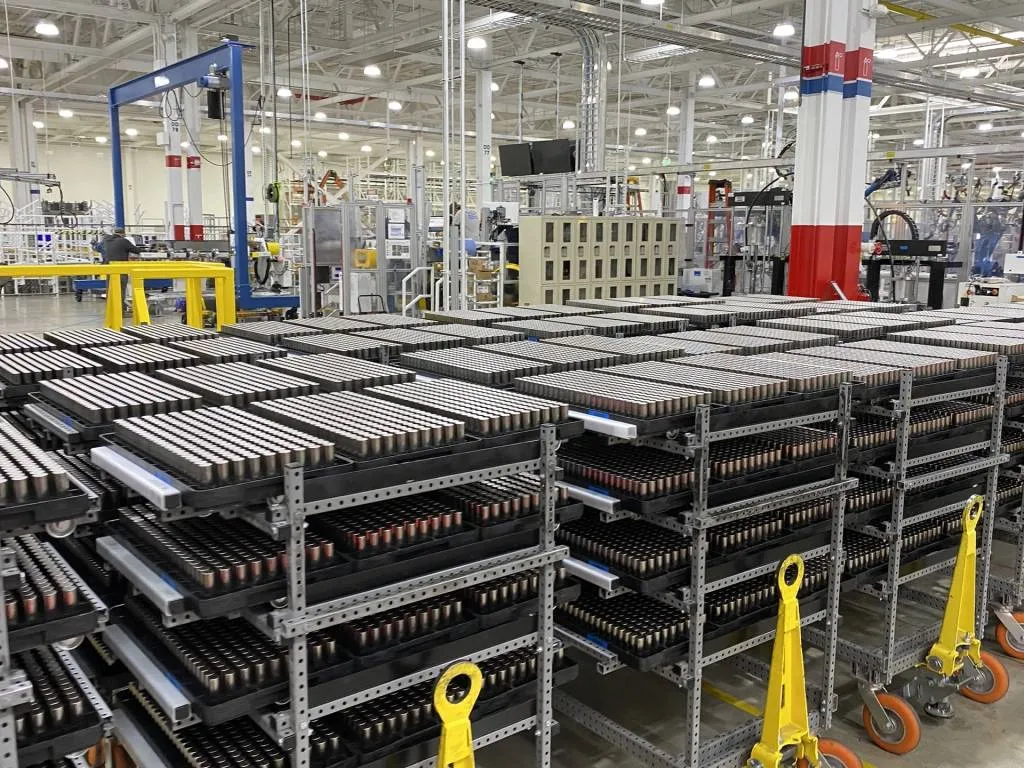Market experts are carefully watching a drop in lithium prices—and what impact that could have on EV costs—according to a new Bloomberg report.
Lithium’s benchmark price in China—the world’s largest new-car market and a center for battery production—is down about 80% from its November 2022 record high, the report noted. Prices of other battery materials are also falling, meaning overall battery prices are dropping again after a raw material price surge in 2022.

Stack of Rivian battery cells
Batteries account for the majority of the cost of EVs, so price decreases are key to EV affordability. And while global EV sales are still growing, demand isn’t increasing quite as fast as the industry anticipated, the report notes.
Low raw materials prices and excess manufacturing capacity caused by overoptimistic EV growth predictions seem like ingredients for an EV price war, but the report doesn’t go that far. But it does suggest automakers now have the flexibility they haven’t enjoyed up until now. A lithium glut allows automakers to continue building up the manufacturing infrastructure needed for continued EV sales growth, without price increases that might push away consumers.

2023 Kia Niro EV
The current decrease in lithium prices has been caused in part by expansion of mining, particularly from « relatively low-grade mines in China. » The U.S. was a global leader of lithium production in the 1990s, but let production falter due to cost issues, a 2022 report found. The U.S. holds massive lithium reserves, but new mining continues to face cost issues, as well as opposition from environmentalists and residents of areas likely to be impacted by mining.
Smaller EV battery packs could lessen the lithium mining mess by requiring less of the material (and others). But that appears to be the opposite of the direction the market is going. Big battery packs are a shortcut to more range, and thus a hedge against one of the main consumer worries surrounding EVs. That’s unlike to change for the time being.

